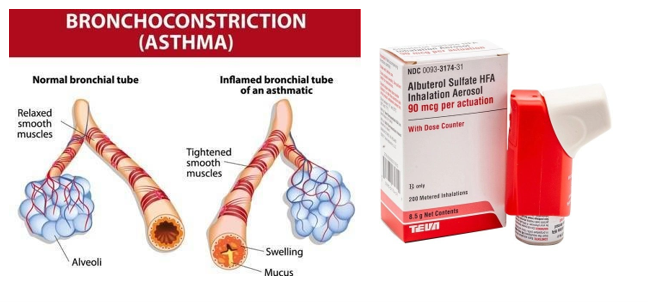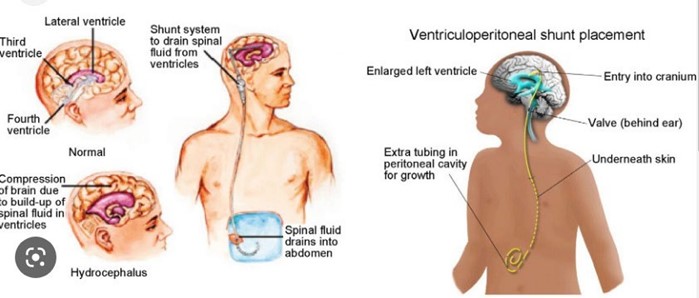A 6-year-old boy with bronchial asthma takes the beta-adrenergic agonist agent albuterol. The child's mother tells the nurse that she uses this medication to open his son's airway when he is having trouble breathing.
What is the nurse's best response?
Advise the mother that overuse of the drug may cause chronic bronchitis.
Assure the mother that she is using the medication correctly.
Confirm that the medication helps to reduce airway inflammation.
Recommend that the mother bring the child in for immediate evaluation.
The Correct Answer is B
Albuterol is a beta-adrenergic agonist agent that is used to open the airways in people with bronchial asthma. The mother's use of this medication to open her son's airway when he is having trouble breathing is appropriate. Overuse of the drug may cause side effects, but it does not cause chronic bronchitis (A)
Albuterol helps to relax the muscles in the airways, but it does not reduce airway inflammation (C)There is no indication that the child needs immediate evaluation (D)

Nursing Test Bank
Naxlex Comprehensive Predictor Exams
Related Questions
Correct Answer is A
Explanation
At the age of 3, children should be able to speak in simple sentences with a minimum of four words. This is a normal developmental milestone for this age group. Choices B, C, and D are not appropriate developmental milestones for speech and language skills for a 3-year-old child.
Correct Answer is D
Explanation
The absence of continuous headaches in the child indicates that the VP shunt is functioning normally. A VP shunt is used to treat hydrocephalus by draining excess cerebrospinal fluid from the brain to the abdomen. If the shunt is functioning properly, it should relieve pressure on the brain and reduce symptoms such as headaches. The other options (A, B, and C) do not directly indicate whether the shunt is functioning normally or not.

Whether you are a student looking to ace your exams or a practicing nurse seeking to enhance your expertise , our nursing education contents will empower you with the confidence and competence to make a difference in the lives of patients and become a respected leader in the healthcare field.
Visit Naxlex, invest in your future and unlock endless possibilities with our unparalleled nursing education contents today
Report Wrong Answer on the Current Question
Do you disagree with the answer? If yes, what is your expected answer? Explain.
Kindly be descriptive with the issue you are facing.
